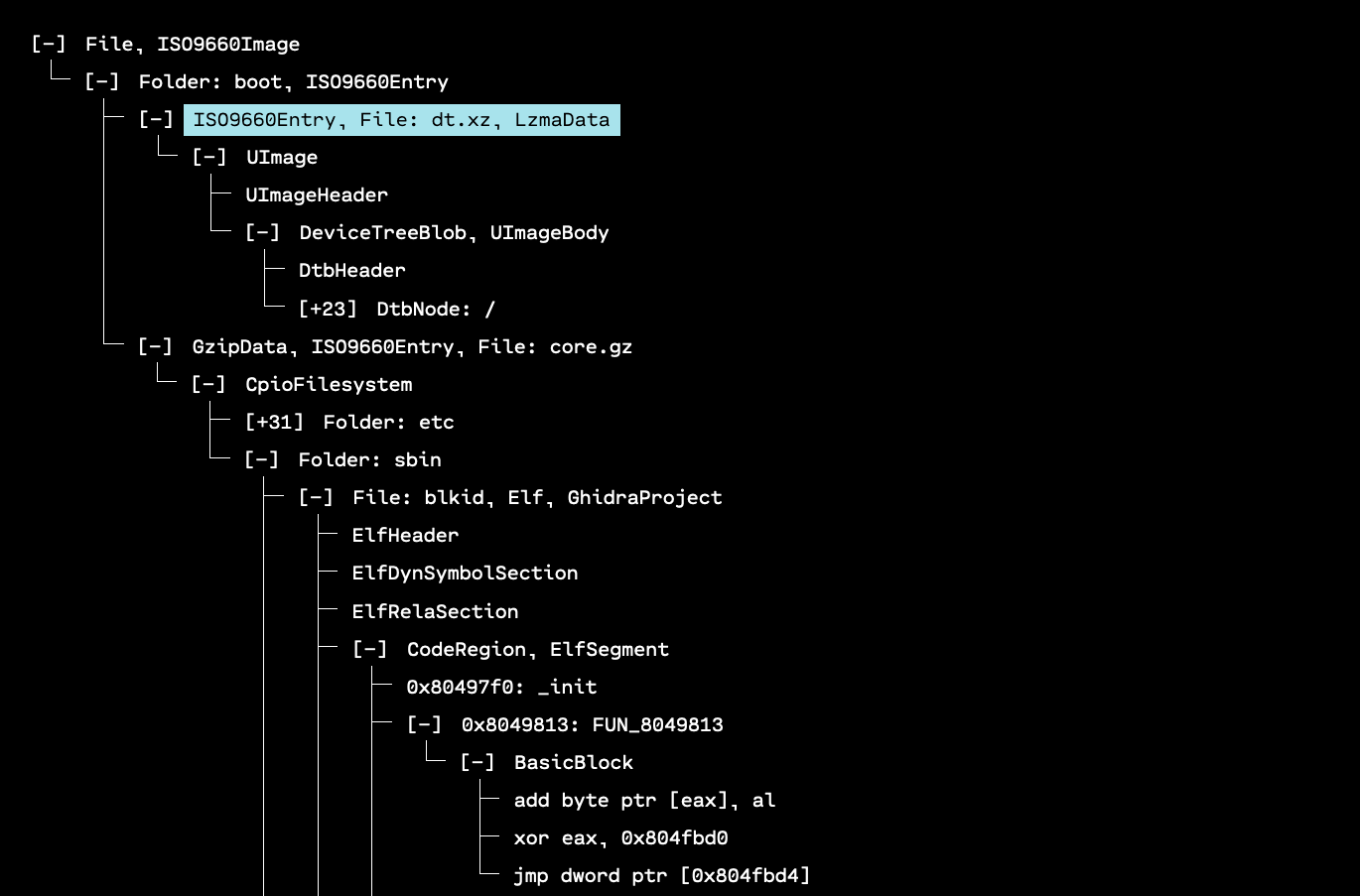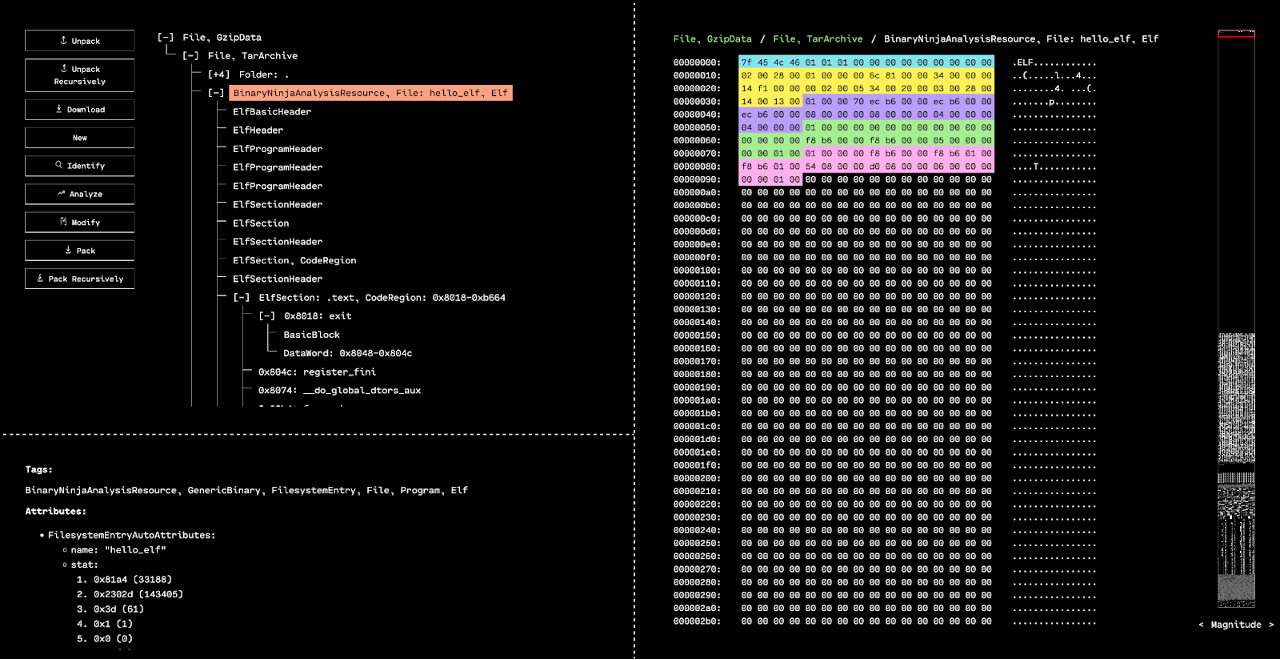First-class Support for Embedded Firmware
OFRAK (Open Firmware Reverse Analysis Konsole) supports a wide variety of binaries, including: userspace executables, embedded filesystems, compressed and checksummed firmware, bootloaders, RTOS/OS kernels, and everything in between.
With OFRAK, you can automatically recognize and unpack an ELF buried within an GZIP-compressed CPIO filesystem inside of an ISO, modify the ELF, and then repack the entire tree.

Python API
Write readable and reproducible scripts that analyze and modify entire classes of binaries, rather than just one specific binary.
# Identify & Unpack
from ofrak import OFRAK
from ofrak_components.elf.model import Elf
ofrak = OFRAK()
context = await ofrak.create_ofrak_context()
resource = await context.create_root_resource_from_file("hello_world")
await resource.identify()
assert resource.has_tag(Elf)
await resource.unpack()Binary Visualizations
Zoom in on details from a bird's eye view with the OFRAK Graphical User Interface (GUI).

Powerful Analysis Backends
Write your business logic once, and use it with any of the supported backends.
import ofrak_binary_ninja
import ofrak_ghidra
# Swap backends easily!
ofrak.discover(ofrak_ghidra)
# ofrak.discover(ofrak_binary_ninja)
# [ ... ]
main_function = await program.get_function_complex_block("main")
Extensibility by Design
Use common component interfaces to easily add support for a new file format or binary patching operation.
class SquashfsUnpacker(Unpacker[None]):
"""Unpack a SquashFS filesystem."""
targets = (SquashfsFilesystem,)
children = (File, Folder, SpecialFileType)
async def unpack(self, resource: ResourceInterface, config=None):
with tempfile.NamedTemporaryFile() as temp_file:
resource_data = await resource.get_data()
temp_file.write(resource_data)
temp_file.flush()
with tempfile.TemporaryDirectory() as temp_flush_dir:
command = [
"unsquashfs",
"-no-exit-code", # Don't return failure status code on warnings
"-force", # Overwrite files that already exist
"-dest",
temp_flush_dir,
temp_file.name,
]
await unpack_with_command(command)
squashfs_view = await resource.view_as(SquashfsFilesystem)
await squashfs_view.initialize_from_disk(temp_flush_dir)




